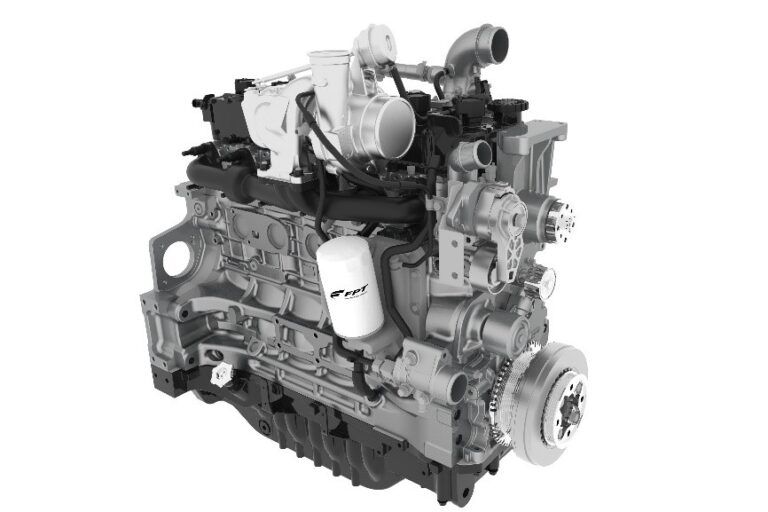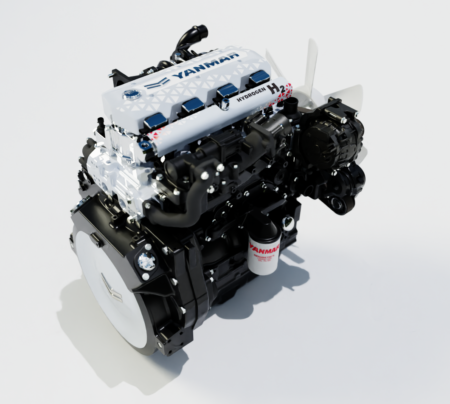As part of its continuous commitment to sustainable powertrain solutions, FPT Industrial is presenting a new natural gas engine specifically developed for off-road applications.
With this N67 launch, FPT is leveraging its experience in natural gas (NG) engines to lead the introduction of this technology in agricultural and construction machinery. Thanks to the launch of the F28 Natural Gas, FPT is the first manufacturer to have a series of low and mid-range Natural Gas engines for agriculture.
The N67 Natural Gas is exhibited at Agritechnica, in Hannover, Germany, atstand C34 – Hall 16. With a displacement of 6.7 liters and a six cylinder in-line configuration, the new engine offers Diesel-like performance in agricultural applications, delivering power of 180 kW at 1,800 rpm and torque of 1,035 Nm at 1,500 rpm.
Compatible with Compressed Natural Gas (CNG), Liquefied Natural Gas (LNG) and biomethane, the N67 NG has 10% lower CO2 emissions than Diesel engines in real field conditions. When running on biomethane, this can reach virtually zero or even become negative, contributing to a new circular economy free from waste and fuel costs, that can lead to completely efficient and productive agriculture.
Natural Gas also results up to 98% less Particulate Matter (PM) and 48% less NOx when compared to Diesel. All these environmentally friendly benefits have been proven by the over 50,000 FPT NG units sold to date worldwide, and are the outcome of its more than 20 years’ experience in this technology.
FPT currently holds 70% European market share for Natural Gas engines for goods and people transport and is also the manufacturer with the widest range of gas engines.
The N67 NG engine has a robust off-road-oriented design, with high performance materials and structural configuration for fitting on tractors, ensuring durability and reliability. Stoichiometric combustion and multipoint gas injection ensure stable and clean combustion for high efficiency and low emissions. Finally, it also has reduced running costs in comparison to diesel, service interval of 600 hours and a maintenance-free 3-way catalyst as its after-treatment system to comply with the latest emissions standards.





